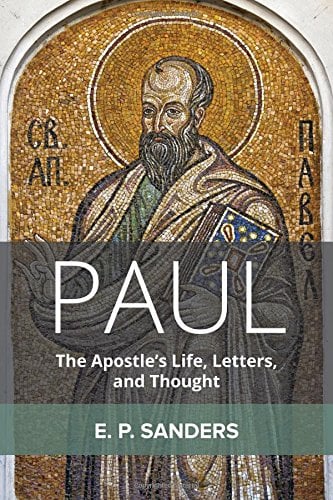APPENDIX I— HOMOSEXUALITY
pp. 727-29— During the golden age of Athens 480-350— older male on younger male sex was idealized. The younger partner was supposed to be passive, the older active. Sex was supposed to be between the thighs, but if it was anal the boy was not supposed to like it. Boys were courted once they reached puberty, and they had guardians when they were school age. Part of the cause was exercise in the nude in the gymnasium, where boys would be sized up by older men. Sanders notes that we really have no texts on lesbianism except the poems of Sappho, and some vase paintings, but it clear existed. The standard work is K.J. Dover, Greek Homosexuality (Cambridge, 1978).
Plato, Symposium 192a-b– Some are not inclined to marry and have children, but do so in deference to society. They would prefer to just spend time with their male partner.
p. 732— this was not just about sex but about romantic courtship, in part because you couldn’t court women that way, they were protected and marriages were arranged. And we are talking about elite culture— men who had time to pursue boys. If an elite male went from boy lover to boy lover he was considered a prostitute, and if he submitted to be passive to some other male, that was breaking the rules. A person who did that was disqualified from carrying out the duties of Athenian citizenship if he became a male prostitute and accepted money for sex.
p. 734— Oral sex seems to have been frowned upon, and some youth extended their time as boy toys by shaving their hair etc. Outside of Athens and its social customs it seems that men having sex with men or women was not frowned upon if they were active and not acting like a prostitute (and taking money).
p. 736— Romans seemed officially to condemn Greek pederasty, the whole psycho-social game of courting. From the Roman point of view the male should be virile and dominate. This might involve other males but it was not a process of wooing etc. See E. Cantrella, Bisexuality in the Ancient World (New Haven: Yale, 1992) p. 98. Also the Roman male citizen in pre-Hellenic times should never be the passive partner. The free adult male in both settings was never to be the passive partner.
p. 738—During the Empire, Roman men had in various cases acquired a taste for pederasty. But surprisingly there are reports of both Julius Caesar and Augustus being the passive partner of male lovers, and of Caesar it was said he was every woman’s husband and every man’s wife. But in general effeminacy continued to be despised especially if men were passive sexual partners. See T.K. Hubbard, ed. Homosexuality in Greece and Rome, (U. Cal, Press 2003). Society generally disapproved of lesbianism and it was roundly critiqued in what references we find in literature (see Caelius Aurelianus cited in Cantrella p.169).
p. 742—In Plato’s Symposium we find the notion that physical gratification is a temptation that the true philosopher should resist. In Philo’s Laws we hear that homosexual expression is contrary to nature— Spec. Laws. 1.636a-c.
p. 743— Seneca the Stoic said men should not engage in sex very often even with their wives, and should have it like the animals only to produce offspring and not during a wife’s pregnancy (See Cantrella, Bisexuality p. 190). So also Musonius Rufus.
Dio Chrysostom criticizes men who take the active role in homos. Intercourse as being excessively lustful. Note they did not regard men as homosexual in orientation.
p. 744— It is probable that few Jews followed the lead of Philo in accepting the anti-pleasure view of some Stoics and Cynics.
p. 745—- Paul follows other Jews in condemning homosexual acts on Biblical grounds Paul condemns desires of the flesh (Gal. 5.26,24; Rom. 13.14) but does not tell converts that desire should be no part of the marital relationship.
p. 746— Once Christianity became overwhelmingly Gentile (my observation) and once Christianity accepted the sexually repressive side of Greco-Roman thought (Stoics and Cynics), it rejected all competing view particularly the notion that homosexual activity was natural. Interestingly the medical thought of the later Roman Empire thought sexual activity was too draining for men, bad for the nerves, lungs, head. (see A. Rouselle. Porneia. On Desire and the Body in Antiquity, Cambridge: Blackwell, 1988). See the quote from Galen of Pergamon on p. 17.
——













